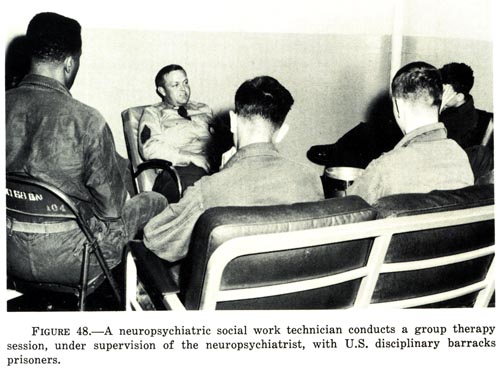Interpersonal treatment is an offshoot of psychotherapy in that it involves speaking to a therapist and identifying problematic patterns in a patient’s life. However, it focuses less on deep-seated roots of these issues and more on how a person’s current relationships in life are aggravating the symptoms of the problem and how to address those relationship issues[1].
Meanwhile, there are various socially-based treatment options being cultivated by psychologists and psychiatrists today. The most prominent of these is likely group therapy, which has the advantages of being cost-effective and self-supporting, wherein people with similar disorders congregate in a circle or workshop with one or more health workers to lead them in working through their problems together. It relies on principles of altruism, sharing hope and solution/coping ideas and the cathartic effect of sharing one’s story. Social learning theory, developed by Bandura[2], dictates that people learn behaviours from each other as well so seeing a fellow group member mounting the obstacles in the way of, for example, addiction recovery, can be highly motivating for other members of the group and provide a ‘domino effect’ cure.

These are not the only types of social treatments for abnormal psychology, but they are the most prominent today. See the postings in this category for more examples and details.
References:
1. Encyclopedia of Mental Disorders. Interpersonal Therapy. [ONLINE] Available at: www.minddisorders.com/Flu-Inv/Interpersonal-therapy.html. [Last Accessed 1/12/2013].
2. Sam McLeod (2011). Bandura - Social Learning Theory. [ONLINE] Available at: www.simplypsychology.org/bandura.html. [Last Accessed 1/12/2013].
© BrainMass Inc. brainmass.com July 25, 2024, 8:47 pm ad1c9bdddf